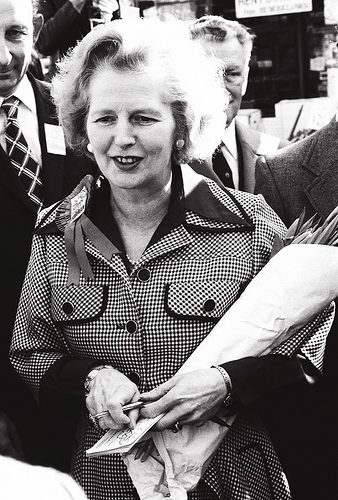I recently read an article by Jonathan Riggs that appeared on the website of the USC Davis School of Gerontology. In “The Memory of Movies,” Mr. Riggs looked at the work of Aaron Hagedorn, Ph.D. who analyzed Hollywood’s depictions of dementia and Alzheimer’s disease. The impetus for the article was the 2011 film, The Iron Lady, which won actress Meryl Streep an Oscar. Ms. Streep portrayed former British Prime Minister Margaret Thatcher who is, in real life, living and struggling with Alzheimer’s disease.
The film is controversial in some circles. Some, (particularly those on the other side of the Atlantic), have objected to the depiction of Thatcher as an elderly and infirm lady whose Alzheimer’s has compromised her view of reality and left her plagued by hallucinations. They believe in part that it is “sensationalistic voyeurism” to depict the once-powerful figure in such a diminished state while she is still alive. Others are supportive of the film, believing that publicizing Alzheimer’s in this way can help to stimulate greater interest and progress in the search for tools to diagnose and treat the disease. The Iron Lady illustrates, like no fictional movie can, that the disease has no barriers.
“This film is unusual because Margaret Thatcher is still alive, and some people feel that she is being humiliated by being labeled as demented in her later years. To the contrary, though, I think this film has helped people feel more sympathetic to what she accomplished in her life and understand the struggle she has faced in recent years,” said Dr. Hagedorn of the USC Davis School of Gerontology. “The stories of Margaret Thatcher and Ronald Reagan demonstrate to us that anyone can get this disease, and show us how difficult it is to see a highly accomplished life of hard work end in a quiet and disorienting way.”
I find myself agreeing with the latter sentiment. Those of us who interact daily with people who have Alzheimer’s and other dementias know intimately the difficulties and undeniable sadness that comes with caring for loved ones with these diseases. This film does much to advance knowledge and understanding and that can only be for the good. I give the film “two thumbs up” for Meryl Streep’s extraordinary performance and for shining a spotlight on this terrible disease.
To find other films in which Alzheimer’s plays a role, go to: Eight Movies About Alzheimer’s






